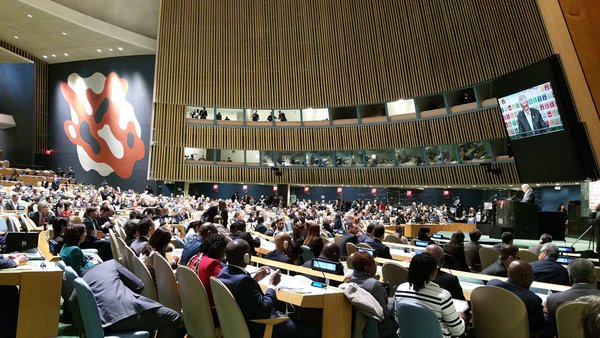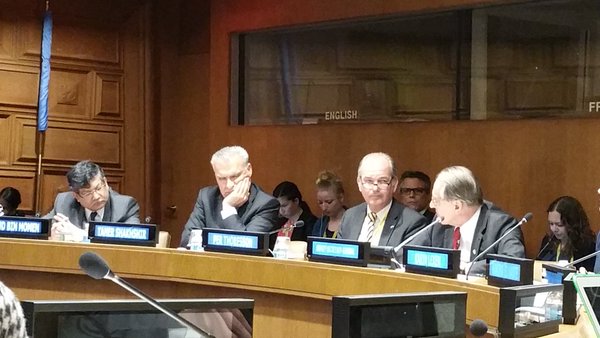
The start of a deep and positive connection between the environment, society and the economy
-
Climate and disaster risks
-
Climate mitigation and adaptation
-
Coastal resilience
-
Community resilience
-
Integrated delta management
A 15 year-old environment campaigner stole the limelight from Ban Ki-Moon at the UN climate reception last Thursday night as he told his story of how his deep despair had turned to optimism because of the coming together of governments around the Paris Agreement last December. I share that sentiment.

The agreement of the 17 Sustainable Development Goals (SDGs) and the Paris Agreement on Climate are not only words and paper. Sure, they are not enough in themselves and the commitments don’t yet go far enough. But they are, I think, the start of forging deep and positive connections between environment, society and economy. This is what I felt leaving New York last Friday, where I was humbled and honoured to be part of the lively discussions in the UN which brought together leaders from government, business and civil society to help decide on how to fast track progress on SDG implementation.
It’s clear to all that we will not end the decline in species, poverty, hunger, water scarcity, pollution, acidification of the oceans and gender inequality through incremental steps. Transformational change is needed across all sectors. Significantly, the talk is not “if” or “what” anymore, but of “how” and “who”. The sense of hope and optimism, and the urgency to get moving, was palpable in all the sessions. There’s only a short window to turn around climate change. The structure of cities will be settled in the next 15-20 years. The loss of species is accelerating…
Economist Nicholas Stern commented that “business can bring speed like the UN can’t”. And unlike the Millennium Development Goals process, businesses and civil society have been part of shaping the SDGs, not only governments. Top business leaders and banks are seeing business opportunities in realigning to meet these global policy goals – and the risks of misalignment. They are busy working out what it will mean and recognise the need for different mindsets and to transform policies, budgets and accountabilities. Major insurance companies commented that the shocks and stresses of mother nature (such as floods and droughts) will shape future business and industry. They are open to partnerships with organisations like ours to drive progress and innovation.

On the same line, the Deputy Secretary General of the UN General Assembly, Jan Eliasson, talking on how to make water a source of cooperation rather than conflict, called for “horizontal working” across sectors instead of working in silos, because “it is more effective and also more fun!”. We agree on this too! Wetlands International is ready to engage and make our contribution together with our broad spectrum of partners.
